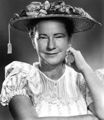51 Nero, later to become Roman Emperor, is given the title Princeps iuventutis (head of the youth).
1188 Blanche of Castile (born) (died 1252)
1193 Saladin, Iraqi-Egyptian sultan (born 1137)
1238 Joan of England, Queen of Scotland (born 1210)
1303 Daniel of Moscow, Russian saint (born 1261)
1394 Henry the Navigator (born), Portuguese son of John I of Portugal (died 1460)
1461 Wars of the Roses in England: Lancastrian King Henry VI is deposed by his House of York cousin, who then becomes King Edward IV.
1484 Saint Casimir, Polish prince (born 1458)
1492 Francesco de Layolle (born), Italian organist and composer (died 1540)
1493 Explorer Christopher Columbus arrives back in Lisbon, Portugal, aboard his ship Niña from his voyage to what is now The Bahamas and other islands in the Caribbean.
1519 Hernándo Cortés arrives in Mexico in search of the Aztec civilization and their wealth.
1615 Hans von Aachen, German painter (born 1552)
1628 The Massachusetts Bay Colony is granted a Royal charter.
1655 Fra Galgario (born), Italian painter (died 1743)
1665 Philip Christoph von Königsmarck (born), Swedish soldier (died 1694)
1675 John Flamsteed is appointed the first Astronomer Royal of Englandied
1678 Antonio Vivaldi (born), Italian violinist and composer (died 1741)
1681 Charles II grants a land charter to William Penn for the area that will later become Pennsylvania.
1744 John Anstis, English historian (born 1669)
1762 Johannes Zick, German painter (born 1702)
1776 American Revolutionary War: The Continental Army fortifies Dorchester Heights with cannons, leading the British troops to abandon the Siege of Boston.
1781 Rebecca Gratz (born), American educator and philanthropist (died 1869)
1789 In New York City, the first Congress of the United States meets, putting the United States Constitution into effect. The United States Bill of Rights is written and proposed to Congress.
1790 David “Robber” Lewis (born), American criminal (died 1820)
1790 France is divided into 83 départements, cutting across the former provinces in an attempt to dislodge regional loyalties based on ownership of land by the nobility.
1791 A Constitutional Act is introduced by the British House of Commons in London which envisages the separation of Canada into Lower Canada(Quebec) and Upper Canada (Ontario).
1791 Vermont is admitted to the United States as the fourteenth state.
1792 Samuel Slocum (born), American inventor (died 1861)
1793 Karl Lachmann (born), German philologist (died 1851)
1793 Louis Jean Marie de Bourbon, Duke of Penthièvre, French admiral (born 1725)
1794 The 11th Amendment to the U.S. Constitution is passed by the U.S. Congress.
1807 Abraham Baldwin, American educator and politician (born 1754)
1817 Edwards Pierrepont (born), American lawyer and politician, 34th United States Attorney General (died 1892)
1826 Theodore Judah (born), American engineer, founded the Central Pacific Railroad (died 1863)
1828 Owen Wynne Jones (born), Welsh clergyman and author (died 1870)
1832 Jean-François Champollion, French philologist and scholar (born 1790)
1837 The city of Chicago is incorporatedied
1847 Carl Josef Bayer, Austrian chemist (died 1904)
1851 James Richardson, English explorer (born 1809)
1853 Christian Leopold von Buch, German geologist and paleontologist (born 1774)
1854 Napier Shaw, English meteorologist (died 1945)
1858 Matthew C. Perry, American navy officer (born 1794)
1861 The first national flag of the Confederate States of America (the “Stars and Bars”) is adoptedied
1862 Jacob Robert Emden, Swiss astrophysicist and meteorologist (died 1940)
1863 Reginald Innes Pocock, English zoologist (died 1947)
1864 David W. Taylor, American architect and engineer (died 1940)
1864 Thomas Starr King, American minister (born 1824)
1865 The third and final national flag of the Confederate States of America is adopted by the Confederate Congress.
1866 Eugène Cosserat, French mathematician and astronomer (died 1931)
1868 Jesse Chisholm, American guide (born 1805)
1870 Thomas Sturge Moore, English poet (died 1944)
1871 Boris Galerkin, Russian mathematician and engineer (died 1945)
1876 Theodore Hardeen, Hungarian-American magician (died 1945)
1877 Fritz Graebner, German geographer and ethnologist (died 1934)
1877 Garrett Morgan, American inventor (died 1963)
1881 Richard C. Tolman, American physicist and chemist (died 1948)
1882 Britain’s first electric trams run in east London.
1888 Knute Rockne, American football player and coach (died 1931)
1889 Robert William Wood, American painter (died 1979)
1890 The longest bridge in Great Britain, the Forth Rail Bridge in Scotland, measuring 1,710 feet (520 m) long, is opened by the Prince of Wales, later King Edward VII.
1891 Lois W., American activist, co-founder of Al-Anon (died 1988)
1893 Adolph Lowe, German sociologist and economist (died 1995)
1893 Charles Herbert Colvin, American engineer, co-founded the Pioneer Instrument Company (died 1985)
1901 Charles Goren, American bridge player and author (died 1991)
1901 Wilbur R. Franks, Canadian scientist (died 1986)
1903 Carrie Best, Canadian journalist (died 2001)
1903 John Scarne, American magician (died 1985)
1903 William C. Boyd, American immunologist (died 1983)
1908 T. R. M. Howard, American surgeon and activist (died 1976)
1909 George Edward Holbrook, American engineer (died 1987)
1909 U.S. President William Taft used what became known as a Saxbe fix, a mechanism to avoid the restriction of the U.S. Constitution’s Ineligibility Clause, to appoint Philander C. Knox as U.S. Secretary of State
1910 Knut Ångström, Swedish physicist (born 1857)
1913 The United States Department of Labor is formed
1914 Robert R. Wilson, American physicist, sculptor, and architect (died 2000)
1916 Hans Eysenck, German-English psychologist (died 1997)
1916 William Alland, American actor, producer, and director (died 1997)
1917 Jeannette Rankin of Montana becomes the first female member of the United States House of Representatives.
1918 The first case of Spanish flu occurs, the start of a devastating worldwide pandemic.
1918 The USS Cyclops departs from Barbados and is never seen again, presumably lost with all hands in the Bermuda Triangle.
1919 Buck Baker, American race car driver (died 2002)
1926 Henri de Contenson, French archaeologist
1926 Richard DeVos, American businessman, co-founded Amway
1932 Ed Roth, American illustrator (died 2001)
1933 Frances Perkins becomes United States Secretary of Labor, the first female member of the United States Cabinet.
1934 Sandra Reynolds, South African tennis player
1936 Jim Clark, Scottish race car driver (died 1968)
1938 George Foster Peabody, American banker and philanthropist (born 1852)
1941 World War II: The United Kingdom launches Operation Claymore on the Lofoten Islands; the first large scale British Commando raidied
1942 David Matthews, American keyboard player (Manhattan Jazz Quintet)
1943 World War II: The Battle of the Bismarck Sea in the South West Pacific comes to an endied
1944 Bobby Womack, American singer-songwriter (The Valentinos)
1944 Harvey Postlethwaite, English engineer (died 1999)
1944 World War II: After the success of Big Week, the USAAF begins a daylight bombing campaign of Berlin.
1946 Bror von Blixen-Finecke, Swedish hunter (born 1886)
1950 Adam Rainer, Austrian dwarf and giant (born 1899)
1950 Rick Perry, American politician, 47th Governor of Texas
1953 Emilio Estefan, Cuban-American drummer and producer
1957 The S&P 500 stock market index is introduced, replacing the S&P 90.
1963 Jason Newsted, American bass player and songwriter (Metallica, Voivod, and Flotsam and Jetsam)
1969 Chaz Bono, American author and activist
1969 Matt Tilley, Australian comedian and radio host
1974 People magazine is published for the first time in the United States as People Weekly.
1976 The Northern Ireland Constitutional Convention is formally dissolved in Northern Ireland resulting in direct rule of Northern Ireland from London by the British parliament.
1977 The 1977 Vrancea Earthquake in southern and eastern Europe kills more than 1,500, mostly in the seriously damaged Bucharest in Romania.
1978 Joe Marsala, American clarinet player and songwriter (born 1907)
1979 Mike Patto, English singer and keyboard player (Spooky Tooth, Boxer, Patto, and Timebox) (born 1942)
1980 Nationalist leader Robert Mugabe wins a sweeping election victory to become Zimbabwe’s first black prime minister.
1983 Bertha Wilson is appointed the first woman to sit on the Supreme Court of Canada.
1985 The Food and Drug Administration approves a blood test for AIDS, used since then for screening all blood donations in the United States.
1986 Elizabeth Smart, Canadian poet and author (born 1913)
1986 The Soviet Vega 1 begins returning images of Halley’s Comet and the first images of its nucleus.
1992 Mary Osborne, American guitarist (born 1921)
1994 John Candy, Canadian comedian and actor (born 1950)
1996 Minnie Pearl, American comedian and singer (born 1912)
1998 Gay rights: Oncale v. Sundowner Offshore Services: The Supreme Court of the United States rules that federal laws banning on-the-job sexual harassment also apply when both parties are the same sex.
1999 Harry Blackmun, American jurist (born 1908)
2007 Estonian parliamentary election, 2007: Approximately 30,000 voters take advantage of electronic voting in Estonia, the world’s first nationwide voting where part of the vote casting is allowed in the form of remote electronic voting via the Internet.
2009 The International Criminal Court (ICC) issues an arrest warrant for Sudanese President Omar Hassan al-Bashir for war crimes and crimes against humanity in Darfur. Al-Bashir is the first sitting head of state to be indicted by the ICC since its establishment in 2002.
2011 Mikhail Simonov, Russian aircraft designer, designed the Sukhoi Su-27 (born 1920)
2011 Simon van der Meer, Dutch physicist, Nobel Prize laureate (born 1925)
EO Smith
Latest posts by EO Smith (see all)
- Patriotism - 4 July, 2017
- The Super Sucker Bowl - 10 February, 2017
- Alternative Facts and Science - 24 January, 2017


